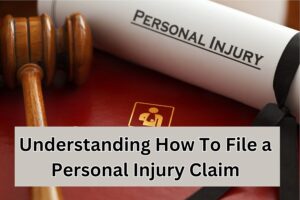Guest Post – Legal Things to Know About Nursing Home Abuse

Disclaimer: The following content you’re about to read should only be treated as a general reference as to the legal aspect of nursing home abuse lawsuits. If you’re needing to seek appropriate legal advice regarding the subject matter, feel free to contact an attorney who has valuable experience in those types of cases similar to yours.
Did you know that over three million people in the United States experience several forms of abuse and neglect while staying in nursing homes? Sadly, nursing home abuse has been a cause of concern for some families who end up needing to get compensation for losses and the justice they deserve for the physical, emotional and psychological harm suffered by an elderly loved one living in a nursing home. Whenever you’re filing a lawsuit, below are the legal things you should keep in mind about nursing home abuse.
What is a Nursing Home Abuse?
- Nursing home abuse has been a complicated topic. Due to an increased number of nursing home abuse incidents reported nowadays, families are left with no other recourse but to institute legal action against the offending nursing home facilities.
- Take note that a nursing home abuse is a form of violence usually committed to elders living in nursing homes. It involves an unlawful treatment of elderly people by caregivers and even administrators.
- Keep in mind that a nursing home facility can be held liable for the following types of nursing home abuses:
- Exploitation – This kind of abuse happens when a facility staff manipulates resident elders to give them favors or money.
- Psychological abuse – Verbal maltreatment committed against elderly people is considered as psychological abuse.
- Neglect – A nursing home facility can be guilty of neglect when they provide inadequate care to elderly people such as not treating bed sores, not providing regular check-ups and not adequately maintaining the facility.
- Physical abuse – A common type of a nursing home abuse is physical abuse committed against a resident elder and includes actions such as hitting, hurting or pushing.
- Sexual abuse – Sexual abuse, such as using the elderly to gratify someone’s sexual pleasure, can also be characterized as a nursing home abuse.
What are the legal options for nursing home abuse victims?
When you’ve found out that your loved one has been a victim of abuse in a nursing home facility, it would be sensible if you try to speak with the staff or the administration about the incident. However, if your inquiry doesn’t seem to resolve the seriousness of the issue, bring the matter to the proper authorities including local law enforcement agencies. After a report has been made, it may be about time that you explore the available legal options you can take to give justice to your family member who’s been a victim of nursing home abuse.
#1. Talk to an experienced attorney.
- When you’re bringing a legal action in court about a nursing home abuse case, it’s vital that you hire and consult an experienced attorney. Without the help of a lawyer in litigation, you and your family may find it difficult to know the legal processes you have to go through to recover compensation for damages resulting from the abuse.
- You should also remember that lawsuits involving nursing home abuse includes a complicated process that only lawyers can handle properly.
- As these types of cases make use of medical knowledge and federal and state regulations, the assistance of a legal counsel will contribute to your understanding of the case as a whole.
- That’s why if you want to win a lawsuit against a particular nursing home facility, you should make sure that you choose the right lawyer to represent your case in court legally. An attorney can help you determine the appropriate course of action to take to ensure that the victim can get what they rightfully deserve.
- In choosing a professional attorney, take note of the legal standards and practices that your lawyer will use and understand. You can also utilize the opportunity to inquire about your lawyer’s years of experience and their knowledge in handling cases such as yours.
#2. Consider some legal matters relating to nursing home abuse cases.
Bear in mind that initiating a lawsuit in court may also mean understanding some legal matters concerning some cases of nursing home abuses. Here are some of the legal things you should consider in nursing home abuse lawsuits:
- The Statute of Limitations – Take note that the statute of limitations for nursing home abuse cases varies from one state to the other. For instance, knowing the applicable statute of limitations in your state can help you determine as to when you’ll commence with the court proceedings.
- State Laws – You should also remember that there are several national and local laws which protect the rights of the elderly. That’s why getting to know your state laws can help you deal with your nursing home abuse lawsuit correctly.
#3. Know the potential legal repercussions for guilty nursing home facilities.
- Nursing homes which are found guilty of elder abuse can face the following legal consequences:
- Imposition of compulsory changes to operating procedures
- Imposition of monetary awards for damages
- Forfeiture of government funding
- Suspension or revocation of license
Like other citizens, elderly people also have legal rights which should be protected and respected at all times. While elder abuse can happen anytime in nursing home facilities, taking advantage of the available legal options can be the best thing you can do to safeguard your loved one. In the end, you should always remember that guilty nursing homes shouldn’t get away with the abuse they’ve done to elderly people.
Author Bio:
Lilly Jordan has been a law writer for more than 20 years, and she hopes to impart legal wisdom to the common reader through her works. She is currently working on a new law piece. A certified “foodie,” Lilly loves to cook for her friends and family. She often tries new dishes whenever she has free time.






